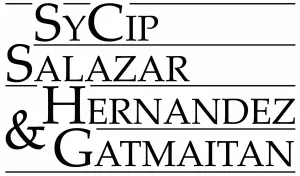By Angelito C. Imperio and Maria Rosario O. Lapuz
The enabling legislation for securitization transactions is now being being considered by both chambers of the Congress of the Philippines. The Senate version has passed first reading and is being discussed at the committee level while the House of Representatives counterpart is already on its second reading. The bill, which is a priority economic measure of the current administration of President Gloria M. Arroyo, is likely to be passed into law this year.
Policy Objectives
Both versions of the bill aim to promote asset-backed securities as alternative investment instruments and encourage securitization by reducing legal, fiscal and regulatory deterrents to this type of transaction. The proposed law is expected to help develop the languishing capital market and diversify investment portfolios. Proponents of the bill also hope that securitization will help develop a secondary mortgage market, resulting in benefits such as the unlocking of the government’s long-term mortgage portfolio for lending, reduction of leverage in financial markets, and easing of pressure on interest rates.
Scope
The draft bills define securitization as "the process by which assets are sold on a without recourse basis by the Originator or Seller to a Special Purpose Vehicle (SPV) and the issuance of asset-backed securities (ABS) which depend, for their payment, on the cash flow from these assets which are sold in accordance with the plan." Assets that can be securitized include mortgage loans, personal loans, contract to sell receivables, trade receivables, lease receivables, and credit card receivables. Receivables that are to arise in the future, non-financial assets capable of generating cash payment stream and other assets of similar nature may also be included in the asset pool, subject to approval by the appropriate government regulator. While a diverse range of receivables may be securitized, each asset pool comprising a securitization issue would be limited to identified and homogeneous assets.
Participants in securitization
The proposed legislation requires that the SPV be in the form of either a corporation or a trust either of which must have been created for the sole purpose of securitizing an identified homogeneous asset pool. Special purpose corporations are required to be stock corporations established in accordance with the Corporation Code of the Philippines and rules that may be promulgated by the Philippine Securities and Exchange Commission (SEC). Special purpose trusts, on the other hand, must be administered by an entity duly licensed to perform trust functions under the General Banking Law.
The SPV may designate a Servicer to collect and record payments received on the assets, to remit the amounts collected to the SPV, and to perform additional services except for administration or asset management.
The SEC will act as the main regulator, with each asset-backed security issuance to be registered with the SEC. Each securitization plan must also be approved by and registered with the SEC.
Meanwhile, when the originator of the assets is a bank or a financial intermediary subject to the supervision of the Bangko Sentral ng Pilipinas (Central Bank), the securitization plan must first be endorsed by the Central Bank before it is submitted to the SEC for approval.
Independent credit rating agencies will be required to evaluate each asset-backed security issue. Each proposed securitization plan submitted to the SEC must have a report by an independent credit rating agency wherein the rating agency also states the limitations, qualifications or material risks that are not addressed in the report.
Credit enchancements of asset-backed securities
The House of Representatives version suggests several types of credit enhancements and liquidity supports to strengthen the marketability of the different asset-backed securities, including a standby letter of credit, surety, guarantee bond, over-collateralization and subordinated securities.
Incentives
The draft bills exempt the transfer of assets to the SPV, issuance of asset-backed securities, and subsequent transfers thereof, from payment of documentary stamp taxes and value-added taxes. However, the parties are still required to pay the SEC registration fees and fees to cover the cost of registration and annotation related or incidental to the transfer of assets or the security interest in the assets.
It is also proposed that the SPV will not be subject to gross receipts tax but be considered as a corporation for tax purposes and subject to the regular corporate income tax. As to the yield from the asset-backed securities, lawmakers are planning to subject this to a 20% final withholding tax and not the normal corporate income tax. But to promote the securitization of mortgage and housing-related receivables of government housing agencies, the yield that an investor derives from any low-cost or socialized housing-related asset-backed securities issued within five years from the effectivity of the Act will be exempt from income tax.
The content of this article does not constitute legal advice and should not be relied on in that way. Specific advice should be sought about your specific circumstances.

